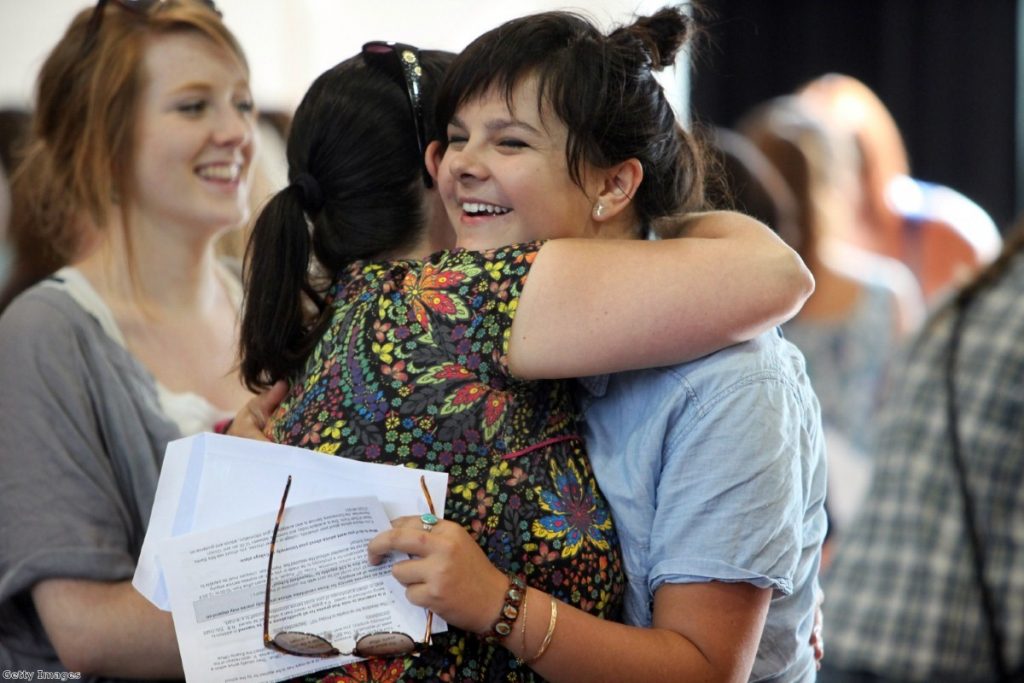Still too easy? A-grade students fall for first time in 20 years
By Georgie Keate
The number of students reaching the A and A* grades at A-level has dropped for the first time in 20 years.
This year, 26.6% of exams were awarded the top grades, down 0.4% from 2011, according to Joint Council for Qualifications (JCQ) results published this morning.
In 1991, A-level grades dropped 0.1% to 11.9%, making 2012 a record decrease with only 7.9% of exams attaining the highest A* grade – down from 8.2% last year.


However, general secretary of the Association of School and College Leaders Brian Lightman called the drop in grades a "minor fluctuation".
"The important point here is, if you look at the trend of improvements in schools, the numbers now succeeding at GCSE and accessing A-levels has been a success story of our education system," he said.
In another surprising development, boys have narrowly beaten girls to the top A* grade although girls have continued to receive the most As.
Although the top grades have dropped, the pass rate has continued to rise for the 30th year in a row with 98% of exams achieving an E, in contrast to 97.8% in 2011.
Meanwhile, Labour have used the upward trend of passes to highlight the success of their educational programme while in government before 2010.
“These impressive results are thanks to better teaching, better school leadership, Labour's relentless focus on literacy and numeracy and record investment in schools," said shadow education secretary, Stephen Twigg.
"While exams must remain robust and challenging the Government must also ensure that this legacy is not undermined by reforms that are taking us in the wrong direction on standards.”
There is also concern over the drop in pupils taking French, German and Spanish with exam board AQA chief executive Andrew Hall calling it a "crisis in foreign languages".
"We have the euro economy in crisis – I think modern foreign languages are in the same place," he said.
The number of students admitted into university after results is down seven per cent on last year, with 79,000 still waiting for answers and 10,000 applying through clearing. They will be the first year to pay the full £9,000 a year fees.
Universities can also accept an unlimited number of AAB students which has increased competition with teenagers failing to get a place if they even marginally miss out on their grades.
While the exams watchdog Ofqual has told exam boards they must be able to show that rises in results correlate to better performances, teachers and exam bodies continue to argue pupils are taught better and work harder.









